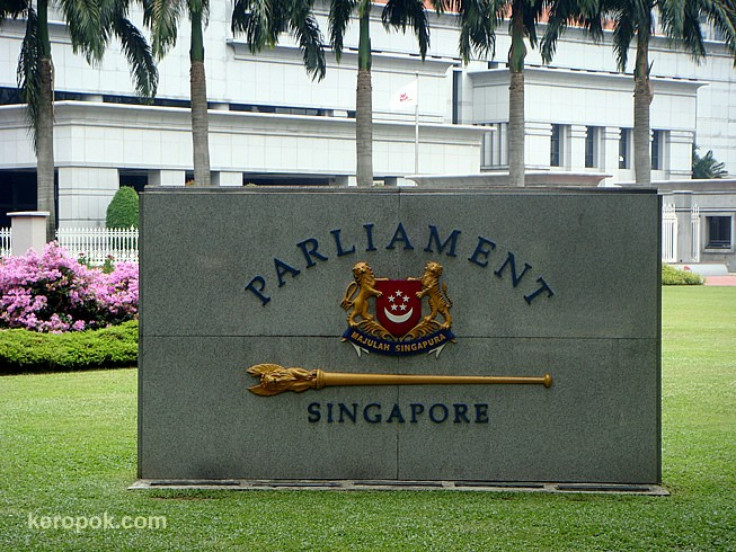Millionaire?s Row: Singapore Government Ministers? High Salaries Spark Outrage

If you want to become an instant millionaire, you might consider moving to Singapore and running for high political office there.
Singaporean government ministers are among the highest paid state officials in the world.
Not only is the Singaporean Prime Minister, Lee Hsien Loong, the highest paid elected leader in the world (bringing home a cool $2.4-million per year), but most of his top ministers earn in excess of $1-million annually (not including generous perks and pensions).
By contrast, the President of the United States, Barack Obama, only makes $400,000 per year (a pitiful one-sixth of Lee’s annual income).
Other Asia-Pacific heads of state are also paupers compared to Lee -- Julia Gillard, Prime Minister of Australia makes about $340,000; Hong Kong Chief Executive Donald Tsang takes home $530,000 a year, while Japan's Prime Minister Naoto Kan earns a pedestrian $273,000,
Also, consider this comparison: the former U.S. Secretary of Defense, Robert Gates, earned about $157,000 per year, while the defense minister of Singapore, Ng Eng Hen, rakes in $1.2-million annually -- about seven-and-a-half times what his American counterpart earned.
However, the U.S. is the world’s dominant superpower with a defense budget of $700-billion – while the tiny city-state of Singapore has a military budget of only $15-billion.
Why is there such a discrepancy?
In 1994, the Singapore government (under Prime Minister Lee Kuan Yew, the father of the current leader) enacted a policy whereby ministers would be paid according to a scale calculated at two-thirds of a composite of the top professionals in the country, which included bankers, corporate chief executives and attorneys.
By 2007, after the government approved a 60 percent raise in ministers’ salaries, they were averaging $1.26-million in annual income.
The state justified the lofty pay as a way of attracting competent candidates and to minimize the temptations of corruption and bribery.
Prime Minister Lee has said in the past: “Ministers who deal with billions [of dollars] cannot be paid low salaries without risking system malfunction. Low salaries draw in hypocrites, who ‘sweet talk’ their way into power in the name of public service.”
In fact, during Rupert Murdoch’s recent testimony before British MPs in London, he mentioned the high pay of Singaporean ministers and suggested it was a good way to have a “clean” government.
The ruling People’s Action Party (PAP) decided on the grounds of reducing corruption and recruiting talent into the system that it should pay ministers at the top market rate, explained Bridget Welsh, an associate professor in political science at Singapore Management University,
Outrage over excessive ministerial salaries have been building in Singapore, a prosperous state with only 5-million people.
However, PAP was long able to ignore such grievances since they had a hammerlock on the government (they have basically run the country since 1965).
Since the recent May general elections, however, when PAP lost a number of seats in Parliament and opposition parties tripled their presence in the legislature, the tide may be turning.
“This issue has caused serious outrage and the fact that this is the first policy that the government has reviewed after its biggest loss at the polls since independence is testimony to how much it grates,” Welsh stated.
“Ministers in Singapore are believed to make more daily than the average person does monthly. It is [also] important to note that ministers in Singapore also make additional money from additional positions, some of them government-appointed companies. Inflation is not the marker.”
Shirley Lim, a member of the Opposition Workers’ Party, has long criticized the high salaries paid to government salaries, citing that they do nothing but widen the wealth gap between the bureaucrats and the public and undermines the very purpose of public service.
“Can we say that each and every minister in the cabinet would become a top earning banker, accountant or CEO [if he left office]?” she once asked.
“Other countries favor a more moderate use of taxpayers’ money for salaries, and they do not seem to have run their countries into the ground.”
Now that PAP has lost its stranglehold on government seats, it may be forced to listen to such complaints. In fact, Prime Minister Lee has appointed a committee to review government salaries.
The committee’s chief Gerard Ee, chairman of Changi Hospital, has vowed: “You can expect that in all probability, salaries will be cut.”
Welsh further notes that the PAP has lost considerable support, which indicates a serious loss in legitimacy.
“The high pay is seen as contributing to elitism and distance from the citizenry, further contributing to loss of support,” she added.
Moreover, Welsh in not totally convinced that high salaries deter political corruption.
“The fact is that Singapore may not have open bribery and robbery of government coffers, but the issues of revolving doors and special elite relationships that speak to a system lacking transparency are there,” she said.
“Keep in mind the threat of defamation remains a tool of PAP leaders.”
© Copyright IBTimes 2024. All rights reserved.











